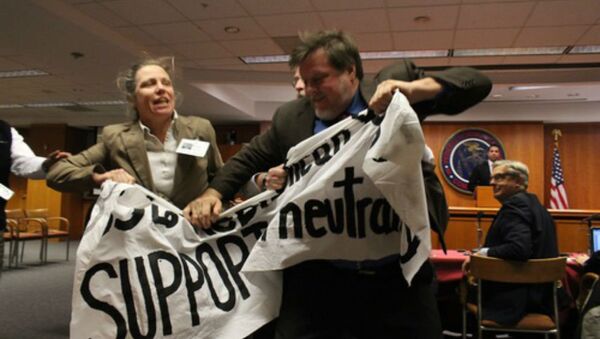However, Alamo Broadband, a small ISP in San Antonio, Texas which only has 1,000 customers is insisting that the FCC's new rules hamper its ability to provide high-definition voice services over the internet in the manner that Skype does (Voice over Internet Provider, or VoIP), and is returning to the free speech argument to challenge the regulator.
"With prioritization, broadband providers convey a message by 'favor[ing]' certain speech-that prioritized content is superior-because it is delivered faster," Alamo Broadband argued in a brief submitted on Monday as part of the broadband industry's new lawsuit against the FCC.
Alamo enlisted Daniel Berniger, a DC-based independent communication architect who pioneered the development of VoIP technology in the 1990's, in filing the brief, which stressed that the ISP had a right to ensure the quality of its internet telephony services by re-allocating bandwidth.
Net neutrality rules, the internet provider previously claimed, "eliminate Alamo's discretion to manage Internet traffic," and Berninger said the net neutrality ban on paid prioritization "precludes him from offering high-definition voice services that require prioritization."
"By foreclosing prioritization, the Order restricts broadband providers' editorial discretion to favor their own and unaffiliated Internet content," Alamo and Berninger wrote in their brief, adding "it also infringes the speech of edge providers like Berninger who wish to distinguish their content and services by having them delivered faster."
An ISP supporting any particular Internet content "is no different than a cable operator favoring popular channels by placing them on particular cable tiers," they claimed. They noted that ISPs have already been responsible for blocking child pornography and spam-which are considered to be unlawful and harmful content for Web users.
"Broadband providers do not surrender their editorial discretion by electing to transmit all lawful content any more than an individual surrenders his free speech rights by not speaking," the Alamo/Berninger statement claimed.
It's not the first case when the First Amendment argument has been used to challenge net neutrality. In 2012 Verizon claimed the FCC had violated the company's constitutional right to free speech and won the case, albeit on other grounds. The First Amendment was invoked again this May when AT&T, CenturyLink, CTIA-The Wireless Association, and the United States Telecom Association joined efforts to accuse the FCC of violating their First and Fifth Amendment rights.
What net neutrality means for Netflix, AT&T, Time Warner — and you http://t.co/u0rBgEn3pd pic.twitter.com/66Uqvkkvdd
— BI Tech (@SAI) October 7, 2015
The First Amendment to the US Constitution specifies that no law can be made "abridging the freedom of speech, or of the press," while the Fifth Amendment states that people may not be "deprived of life, liberty, or property, without due process of law."
In February, the FCC ruled in favor of net neutrality by reclassifying broadband access as a telecommunications service and thus applying Title II (common carrier) of the Communications Act of 1934 to ISPs; common carrier rules are used in the context of telecommunications to regulate telephone companies.
PREPARE for Gov't Internet Control War! #RT http://t.co/YKKCMiioEo #TCOT #CCOT #MakeDCListen #TeaParty #Conservatives
— 365USA (@365USA) October 7, 2015
The ISPs contend that they are not, in fact, telecommunications services and shouldn't be regulated as such. While pioneers like Alamo Broadband may be interested in offering higher-quality specialized services such as VoIP, many of their big competitors hope to do exactly the opposite. For example, a telephone company offering internet access might throttle VoIP bandwidth in order to limit competition from Skype and other such programs. Similarly, they could offer fast access to movies and other multimedia via their own services while limiting access to others. Net neutrality supporters fear that a handful of companies will dominate the market and limit access to potentially competing online services.


